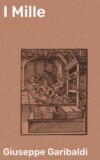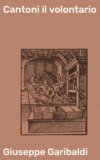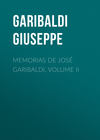Read the book: «The Life of General Garibaldi», page 21
CHAPTER XIV
"Oh, short be his joy in our sorrow and pain,
I see his dark fate writ by destiny's pen."
Eco di Savonarola.
THE CONDITION OF NAPLES IN PAST MONTHS – THE GOVERNMENT CRISIS – ROYAL DECREE – HOW IT WAS RECEIVED – CRUELTIES PRACTISED – FIRST MOVEMENTS OF THE PEOPLE
The excitement in Naples, in consequence of the movements in Central Italy, had been very great so early as in June, and a crisis ere long occurred in the cabinet. At a meeting of the Council of State, the Count of Aquila advocated liberal principles, and the Count of Frani resisted him. Concessions were afterward agreed to, and after a conference of six hours, between Baron Brenier and the Count of Aquila, the following decree was published:
"SOVEREIGN ACT
"Desiring to give to our most beloved subjects a mark of our sovereign benevolence, we have determined to grant constitutional and representative institutions to our kingdom, in harmony with national and Italian principles, so as to guarantee future security and prosperity, and to draw always closer the bonds which unite us to the people whom Providence has called us to govern. For this object we have arrived at the following determinations:
"1. We grant a general amnesty for all political offenders up to this day.
"2. We have charged the Commander, Don Antonio Spinelli, with the formation of a new ministry, who shall compile, in the shortest possible time, the articles of the statute, on the basis of representative, Italian, and national institutions.
"3. An agreement will be established with the King of Sardinia for the common interests of the two crowns in Italy.
"4. Our flag shall be from this day forward adorned with the national colors in vertical bands, preserving always the arms of our dynasty in the centre.
"5. As regards Sicily, we will grant it analogous representative institutions, such as to satisfy the wants of the island; and one of the princes of our royal house shall be our viceroy.
"Portici, June 25, 1860."
A letter from Naples of that date, said:
"Wrung from the sovereign as have been these concessions, against his inclinations and convictions, if his majesty can be said to have any, and known as all these facts are, the decree was received with the greatest indifference. People read it on the walls and passed on. I have not heard one cry of pleasure raised, but I have heard official people say. 'Too late! What a pity that it was not given six months ago.' It was the concession of one with his back to the wall, and who may hereafter say, as Ferdinand II. said, that he yielded on compulsion, and it was not binding.
"An order was given for the immediate release of the political prisoners in Santa Maria Apparente, and a steamer, hired by their friends, went to Capri to-day to bring back the victims of a long and cruel persecution."
Everywhere this decree was regarded in the same manner. The celebrated Poerio, who had been released from a long and cruel imprisonment a few months before, for supporting the constitution to which the father of the present King of Naples had himself sworn, was at this time a member of the House of Deputies of Sardinia, and in a speech said:
"The traditions of the Neapolitan government are hereditary perjury. The new king, almost to prove the legitimacy of his descent, is preparing to perjure himself; and, in order to qualify himself for the task of forswearing himself, he must first swear. It is with that view that he declares himself ready to swear constitutions and alliances. His object in proposing an alliance with the king's government is obvious. He is only meditating the reconquest of Sicily. These are the old fox-like wiles of the Neapolitan government. As these have thrice availed them, they hope, even now, from the same arts, to attain the same results. But if these are very clearly the intentions of the government of Naples, there is also no doubt but the government of the king – of that king who for the last twelve years has held aloft the banner of Italian nationality, will never desert his post, never will associate itself with a faith-breaking government, a government by the nature of its very institutions an implacable foe to Italian regeneration."
The following is an extract from the letter of an English lady in Florence:
"The details that have reached here, through both private and public information, of the horrible sufferings endured by the Sicilians, are enough to account for the fiendish hatred excited by the Neapolitans, whose conduct to the unfortunate islanders is almost a repetition of the frightful barbarities of the Indians during the late war, for neither sex, age, nor innocence, are any protection against the perpetration of the most awful atrocities. It is beyond belief that, in the nineteenth century, in a Christian part of Europe, there have been scenes enacted within the last few months that renew the days of the Inquisition. A gentleman, residing in Florence, has received intelligence of his family in Sicily, giving details of the sufferings of his brother, who was subjected to a 'torture' that even surpassed all the refined cruelty that was ever imagined by Ximenes and his inquisitorial establishment, having been chained to a copper chair, under the seat of which was lighted a charcoal fire! This is only one of the many incidents that have taken place – incidents that make the cheek grow pale, even to hear of. No wonder there has been such a burst of enthusiasm throughout all Europe for Garibaldi and his noble expedition. Every civilized land has echoed the bell which has been tolled in Italy for the annihilation of despotism. There has not been raised one sympathetic voice to cry to Francis of Naples, 'Hear it not Duncan, for it summons thee' to join the circle of deposed tyrants that have sought asylums within such short distances of each other, imitating the instinct of the featherly tribe, who only seek society with companions of the same color."
The feelings of the people of Naples cannot be imagined, without some knowledge of the cruelties of the government. The following shocking account of the cruelty practised on a man who was called an American, by the priests of Rome and Italy, is from a letter written in Naples, just after the revolution, by a person who saw him and obtained from him since his own story:
BARBAROUS TREATMENT OF A POLITICAL PRISONER
"Amongst the many cases of brutal and illegal imprisonment which have been brought before the public during the last ten days, none has been worse than that of Francisco Casanova, calling himself an American. He was confined in San Francisco, and some young men who had formerly been placed in the same prison, though not in the same room, remembering his case, went, on the amnesty being proclaimed, to deliver him; but he was all but naked, and he could not leave until an advocate called Arene, who has acted with great benevolence, sent him some clothes, and has since received him in his house and fed him. Last night I went to see him, and I cannot tell you whether indignation against this most Christian government or compassion for the victim was the strongest feeling. 'When he entered my house,' said Arene, 'he was supported by two persons, for he was unable to walk. He looked like a ghost.' 'Where am I?' he exclaimed, as he looked confusedly around; and well he might, after six years and a half of confinement from all intercourse with man. But I give you his own description of his sufferings, as nearly as possible in his own words, premising merely that there were witnesses of all that I relate, in Arene himself, a Neapolitan friend, and a foreign consul.
"I landed in Genoa from Boston some time in 1853, and wishing to see the south of Italy, travelled till I came near to Viterbo, when I was cautioned not to go to Rome; but I still persevered in my intention of doing so, when I was arrested as not having a passport, and carried to the Eternal City, where I was placed in the Carcere Nuova. Not satisfied with the report I gave of myself, I was tortured for three months as follows. My hands and arms were bound together, and then, by ropes tied round the upper part of the arms, they were drawn back till my breast protruded, and my bones sounded, 'crick, crick.' There was another species of torture practised upon me, which was this: At night, whilst sleeping, the door was secretly opened, and buckets of water were thrown over my body. How I survived it I cannot tell; the keepers were astonished, and said they never had such an instance; 'but you will never get out alive,' I was told. I replied that I never expected to do so, and prayed for the angel of death to come. The worst torture of all, however, was the prison itself – a room into which a few rays of light struggled from above, and the stench of which was as bad as death. For three months I suffered thus, and then, without any reason assigned, was taken from it and placed, always alone, in a room called 'Salon del Preti,' a large airy room, and was well fed and well treated for twenty-one months more. I was a prisoner of the Cardinal Secretary Antonelli. About the middle of 1855 again, without any reason being given, I was sent off to Naples, was placed first in the Vicaria and afterward in San Francisco, in a small, close room, where I was detained for four years and a half. I was questioned on several occasions, and at last refused to answer, saying that my persecutors already knew what I had to say, that I was unjustly and illegally confined, and nothing could compel me to utter another word. On another occasion I was called before Bianchini, the director of police, who interrogated me. I appealed against my sufferings, and all the reply I received was, 'Va bene, va bene,' from a Christian man to one suffering as I was, but my invariable answer was, I will die first; never will I ask anything of this government. When first I arrived here I had a little money, which for a short time procured me better food than prison fare, and then by degrees I sold my clothes. At last I sold my black bread to have a little salt to sprinkle over my beans, and sometimes to procure some incense to relieve the horrid stench of my prison. As for water for purposes of cleanliness, it was never supplied me, and all that I could do, was to dip one of my own rags in a jug of drinking water, and wash some portions of my body. During the day I could repose, but at night I was covered with black beetles, fleas, lice, and every conceivable species of vermin. I expected death, and desired and prayed for it as a relief, but it never came. My clothes were at last so reduced, that I was all but naked, and so I have passed four summers and winters, pacing up and down my narrow chamber.
"'I will show you my prison-dress,' said he; and going out, returned in a few moments. He might have stood as a model for Lazarus risen from the tomb. The lower part of his body was covered with a thin pair of linen drawers, nothing more. On his feet was a pair of shoes, with soles and upper leather all in holes. He had no shirt, but over the upper part of his body, was thrown a rag, something like a common kitchen-towel, one corner of which he had placed on his head, as the long elfin locks which had not been cut, for many years hung down over his neck and shoulders. He appeared more like a brute than a Christian man. 'See this rag,' said he, 'how I have botched it. This was my dress, and so clad, I paced up and down my solitary den.'
"There is much that Casanova reports of himself that I do not repeat, for it is so mysterious that I require further evidence of its correctness. There can, however, be no doubt of his sufferings and imprisonment in Naples. It has long been whispered about here that an unknown individual was lying in the prisons of San Francisco, but nothing was known of him. He was one of the mysteries of the dungeon, and even now there is much to unravel. Who is he? – what secret motives led to his double confinement here and in Rome? – why was he transferred from the hands of a Christian cardinal to the mercies of De Spagnoli? What he said I report, and time must unravel his story; but the world will know how to appreciate the influence of a priesthood under whose eye such enormities have been committed."
In Naples, on the 26th of June, assemblages of the population commenced. The populace shouted "Garibaldi forever!" "Annexation forever!" "Death to the police!" The following day a panic took place; the police were maltreated, and disappeared as soon as the same cries were raised by the populace.
The king had twice sent Signor Aquila to Baron Brenier, and had promised to make a strict investigation.
On the 28th of June all the police stations were pillaged in open day; forty of the agents were surprised, and either killed or wounded. The archives were burnt. The spoils were carried about in triumph by the populace.
The king had arrived at Naples, and had ordered the immediate formation of a national guard.
A proclamation was issued, prohibiting seditious shouts, and recommending the military to disperse assemblages of the population with moderation.
As the successes of Garibaldi in Calabria became known in the city of Naples, and his unimpeded advance toward that capital, the excitement daily increased. A letter, dated there on the 5th of September, said:
"Seven-league boots must be in fashion again, and Garibaldi must have a pair. It was but yesterday he was at Faro; then we find him at Pezzo, Tiriola, Nicastro, Paolo, until, by a series of gigantic strides, by last reports he was at Campagna, the capital of one of the four districts of Salerno. I shall expect at any hour to meet the great dictator in the Toledo. His march has been a continual triumph – war in its severer aspects he has not seen in the kingdom of Naples, but wreathed with flowers scattering confections and weeping tears of welcome and joy. Apart from a hatred of the Bourbons, Garibaldi is worshipped as a demi-god, and I believe that the veriest reactionist in the kingdom would sheathe his sword to look at him. It is hero-worship which has smoothed the passage of the dictator rather than anything more definite or settled in principle."
The priests, the same letter declared, were much connected with the two last revolutionary attempts:
"For that of Prince Luigi (Count of Aquila), the vicars of some parishes, just before the outbreak was to have occurred, placarded the doors of the houses of their faithful followers with little bills, one of which is in my possession, bearing this inscription:
"'Viva Jesu Christo!
Viva la Madonna Immacolata!
Viva San Francesco!'
"This was to protect those houses.
"Naples is in a state of the greatest excitement. It is one great heart without a head, and the most singular contrasts present themselves at every step. I left a scene of wild confusion in the Toledo late last night, when the names only of Garibaldi and Victor Emanuel were heard, and, going down to Santa Lucia, I found every house illuminated, torches burning, and fagots borne by a crowd of rabble, a small bell tinkling, and a priest bearing the host, surrounded by hundreds of devotees. They stop, and the vast crowd fall upon their knees. Silence! not a sound was heard, except the indistinct roar of voices from the Toledo. On the walls close behind were the cannon of the Bourbons, and in the offing the fleets of many nations, all brought out as distinctly as possible by the gorgeous moonlight of our southern sky. What a host of conflicting ideas were here brought into juxtaposition and contrast!
"Last night it was decided that the king should leave immediately; at midnight it was deferred, but only deferred. The throne has well nigh fallen."
The following Address to the Clergy of the Kingdom was issued by the Ecclesiastical Committee of Union:
"THE CLERGY OF THE KINGDOM
"Viva Italian Independence!
"Viva Victor Emanuel!
"Viva Giuseppe Garibaldi!
"PROGRAMME
"Italianism, Activity, Catholicity – these are the duties demanded of every good Neapolitan Christian, whether priest or layman; these he is called upon to practise both in thought and action for the benefit of the country. Such, in fact, is the speculative and practical principle which in Naples animates the Union Ecclesiastical Committee in order to arrive at the most holy object of independence, in the noble undertaking of Italian redemption. For these reasons the committee are intent on the union of ideas with facts; they profess it to be their indispensable duty to labor unweariedly, so as not to go in opposition to the orthodox faith, which rests in Christ and his vicar on earth – in Christ as God-man, in his vicar as the first religious and the first civil power of the world. Hence, taking its stand on these axioms, the committee declares its intention of realizing the evangelical maxim that spiritually the state is in the church, as temporarily the church is in the state; and so it labors to establish the unity of Italy in the order of religion and civilization; in the order of religion, of which the pontiff of Rome is the œcumenical moderator; in the order of civilization, of which Victor Emanuel is the only regulator in the Italian kingdom."
CHAPTER XV
"Expect not, O Pope! a second retreat
To find in Gaeta, or a stool for your feet:
A worse fate than even your own may await
The felon to you who once open'd the gate."
G. Rosetti. T. D.
THE CONDITION OF NAPLES SINCE THE REIGN OF TERROR IN APRIL – AGITATION ON GARIBALDI'S APPROACH
There was a reign of terror in Naples in April, 1860, in consequence of numerous arrests and imprisonments of persons of all classes, many of them on the merest suspicion. The British minister in that city, who had repeatedly distinguished himself by his humane exposure and protest against the cruelties of the old savage, Bomba, now made new representations to his government, that these measures were taken by the Intendants in compliance with a circular from the Minister of Police. On the 1st of March they arrested numbers who were not suspected at all, and among them several dukes, marquises, counts, and princes. Other evidences were given by the government of their great fear of an insurrection.
The following is from the letter addressed to the King of Naples by the Count of Syracuse:
"Civil war, which is already spreading over the provinces of the continent, will carry away the dynasty into that ultimate ruin which the iniquitous arts of perverse advisers have long been preparing for the descendants of Charles III. of Bourbon; the blood of the citizens, uselessly spilt, will again flood the thousand towns of the kingdom, and you, once the hope and love of the people, will be regarded with horror as the sole cause of a fratricidal war.
"Sire, while it is yet time, save our house from the curses of all Italy! Follow the noble example of our royal kinswoman of Parma, who, on the breaking out of civil war, released her subjects from their allegiance, and left them to be arbiters of their own destinies. Europe and your subjects will take your sublime sacrifice into account, and you, sire, will be able to raise your brow in confidence up to God, who will reward the magnanimous act of your majesty. Your heart, tempered by adversity, will become accessible to the noble aspirations of patriotism, and you will bless the day when you generously sacrificed yourself for the greatness of Italy.
"With these words, sire, I fulfill the sacred duty which my experience imposes upon me, and I pray to God that he may enlighten you, and render you deserving of His blessings.
"Your majesty's affectionate uncle,
"Leopold, Count of Syracuse.
"Naples, Aug. 24."
In the latter part of August, reports of the nearer approach of Garibaldi, and of risings in different parts of the country, were multiplied daily; and the secret patriotic committee more openly and freely circulated their publications, which were to be seen in every house. Movements had been made, before the 25th, in Matera, the Capitanata, Bari, Monopolo, and Sassinoro, and in Potenza and Corleta provisional governments were formed in favor of Victor Emanuel. Indeed, the kingdom was in a state of general revolution, and a pro-dictatorial committee held its sessions to direct "the great Lucanian insurrection." An order was also published in Naples, in the name of Garibaldi, Dictator of the Two Sicilies, providing that all authorities should remain at their posts; that acts of the government should be published in the name of Victor Emanuel; that a committee of public security and a commission of engineers should be formed to barricade the city; and that all capable of bearing arms should join the National Guard. Committees were also formed for looking after the commissariat, and attending to the sick and wounded, on which committee were the names of seven ecclesiastics. The headquarters of the insurrectionists were at Potenza, in the province of Basilicata, and to this point were crowding hundreds and thousands of volunteers. The people of the country itself had taken up arms. All business was suspended; one thought alone occupied the public mind. The great fear of many was of pillage; and the want of occupation, and the almost general famine among the lower classes, gave such a fear yet greater appearance of reasonableness.
The landing of several detachments of the Garibaldians was now a confirmed fact.
The following account of the revolution in the Basilicata will afford an idea of the changes then made in the country:
"The province of Basilicata had long been agitated; it is a mountainous country, subject to earthquakes. The war of Italy, the adventures of Garibaldi, the constitution of Francis II., precipitated the crisis. The reactionary attempts at Matera gave the signal for the movement. Potenza, the chief town of the province, was only defended by gendarmes. They were apparently on good terms with the national guard, and their chief, Captain Castagna, had given his word of honor that he would not be the first to commence the attack.
"On the morning of the 18th of October, the gendarmes formed in column, left the town, and took up a position within musket shot of the houses on the Monte. Castagna removed his men in this way to tranquillize the country, as he said. However, a picket of national guards at the Salsa gate watched the movements of the gendarmes. It was well they did, for Captain Castagna all at once returned with his men at double-quick pace, dividing them into two columns, one of which was to attack the post held by the national guard, and the other to open the prisons.
"The first discharge of the royalists took place before the men attacked had time to cry 'To arms!' A bullet struck Captain Asselta in the temple. He had firmly stood the charge with some fifty of the national guardsmen. Not till then did the latter open fire, and the gendarmes were put to flight. They disbanded about the town and the open country, striking at random, pursued and hunted everywhere by the peasants, who were armed with hatchets. They also lost some fifty prisoners: about fifty were wounded, and more than twenty slain.
"Besides the wound of Captain Asselta, the insurgents had to deplore the loss of two young men, and count both women and children among the wounded. Nevertheless, this strange insurrection, provoked, hastened at least, and justified like the Italian war of last year, by the attack of the gendarmes, was entirely successful, and it spread most rapidly. Clouds of armed mountaineers came down from all parts of the heights to help their brethren in the town. The wounded and royal prisoners were not only spared, at the simple command of a chief, but received every assistance, just as if they had been fighting for the good cause.
"On the 19th, at Tito, the national guard drove out the gendarmes; on the 20th there were more than 10,000 armed men at Potenza; on the 22d 16,000 were mustered. All the nobility, the landowners, the chief inhabitants, the educated citizens, even the priests, were on the side of the insurgents. The peasants took up arms spontaneously to the cry of 'Long live Victor Emanuel.' The cross of Savoy floated everywhere on the tri-color flag. The forces were commanded by a Neapolitan, who had already figured in two former Italian wars – Colonel Boldoni.
Strong detachments were stationed en échelons around the town and upon the mountains. Good positions were occupied, amongst others that of Marmo, whence a handful of men can keep in check an army, and renew the defence of Mazagran. The insurrection assumed such proportions that it kept the royal forces at a distance. Neapolitans and Bavarians had been sent against it; the former stopped at Auletta, the latter at Salerno.
"Potenza was barricaded, and preparing to resist to the death. It had already a provisional government, whose two first acts the National Committee published, headed:
"'VICTOR EMANUEL, KING OF ITALY. GENERAL GARIBALDI,
DICTATOR OF THE TWO SICILIES
"'A pro-dictatorial government has been formed to direct the great Lucanian insurrection. (Basilicata is the ancient Lucania).
"'The members sit permanently in the old hall of Intendants.
"'Potenza, August 19, 1860.'
"'FOR THE DICTATOR, GARIBALDI
"'The pro-dictators, N. Mignona, G. Albini;
the secretaries, Gaetano, Cascini, etc
"'It is ordained: 1. That the authorities shall remain at their posts and actively assist in maintaining order, providing for the proper carrying on of the judicial and civil administration. 2. The acts of the government relating to the civil and judicial administration shall be headed: Victor Emanuel, King of Italy; Joseph Garibaldi, Dictator of the two Sicilies. 3. A committee of public safety is established and a committee of engineers for barricading the town.'
"The fifth article nominates the majors and captains of the national guard. The sixth directs them to form the several corps. The seventh appoints a deputation to see to the conveyance of provisions, etc. The eighth appoints a deputation for providing quarters. The ninth names a committee for attending to the sick, wounded, and prisoners.
"Rumors of the defection of the king's officers were repeated every moment. It was asserted in Naples that General Nunziante had just gone over to Garibaldi. The Duchess of Mignano, the wife of the exiled general, having been ordered to quit Naples, proudly refused to go, and defied the ministers to remove her by force."
During a few days about the beginning of September, the king's ministers, his army and the city, were in a state of the greatest agitation. On the 3d, General Cotrufiano sent in his resignation, but expressed his hope that the ministry would remain in power. The National Guard, who had before communicated with them, then told them that if they did not remain they would commence the revolution in the city.
As circumstances, however, were, the ministers considered it impossible to remain with dignity or advantage to the country, and, en masse, again sent in their written resignation. "We have been called traitors," they said. "We have the troops against us, and no longer enjoy the confidence of the sovereign; we are supported by the National Guard and the people, it is true, and are their ministers rather than the king's; but this is not according to the principles of the Constitution, and we therefore earnestly beg your majesty to choose a transition ministry. Besides, we will not undertake the responsibility of the war against Garibaldi and his followers, for it will be altogether useless." Such, remarks a writer who was at that time in Naples, was the manner in which the ministers addressed his majesty, and put into plain English, it means this: "If your majesty will abandon all self-defence, we will serve you, but if you are determined to risk an action, we will persist in resigning, and then barricades will be formed directly." The choice left to Francis II., then, was revolution or abdication, and this is the end of that vast structure of despotism which Ferdinand II. reared with so much labor, and cemented with so much blood. On Sunday morning, the ministers met in the council chamber, and waited for some decision on the part of his majesty, but none came; but later in the day, De Martino was sent for by the king, and requested to form an administration. This, however, De Martino declined doing, and the king exclaimed, in great sadness, "Then I am abandoned by all." So stood the matter on Sunday night. It was clear that the ministers had no hopes or intentions, even if they remained in power, of doing anything more than keep things together till Garibaldi came. To them, as to all in Naples, it was evident enough that the game was up, and that all they could do for the country was to make the fall, or transition, as easy as possible. Up to that time their conduct was beyond all praise. There was an impression in the city that the ministerial difficulties had been arranged, and, in consequence, on Saturday and Sunday night there was a partial illumination of the city, and bills were placarded bearing the inscription, "Viva Garibaldi!" "Viva Romano!" – the chief minister.
It is impossible for any generous mind to contemplate the position of Francis II. without compassion. Not gifted by nature with much intelligence, kept in gross ignorance, and reared in a school of political despotism and religious bigotry by his father, misguided and betrayed by evil counsellors in the early part of his reign, and finally abandoned by his oldest uncle, and by the contemptible nobility and parasites who supported or tolerated the corruptions of the government so long as they were to their own advantage, he sat alone in his palace, the last sovereign of his family, hesitating as to the moment when he is to lay down both crown and sceptre. Close to his palace crowds were reading and rejoicing in the latest dispatches from the camp of the enemy, who was advancing by rapid marches – an enemy whom he had no force to repel; and not much more distant resided the minister of a sovereign who subscribed himself the "beloved cousin" (or by some similar hypocrisy) of Francis II., at the same time that he was doing all that in him lay to drive him from the throne. The position was a hard one, created by the Bourbons themselves – a fulfillment of the great decree, that the sins of the fathers shall be visited on the children.

















